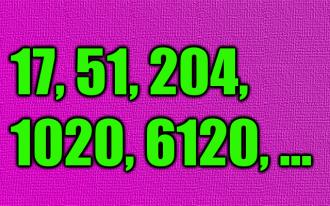What number comes next?
Look at the series (17, 51, 204, 1020, 6120, ?), determine the pattern, and find the value of the next number!Correct answers: 130
The first user who solved this task is Rasoul Jafari.
#brainteasers #math #riddles

I know a guy who survived an 8000-foot fall out of a plane
I know a guy who survived an 8000-foot fall out of a plane.
Until he hit the ground.
****************************
The 1st time I went skydiving I asked the instructor how long it would take to hit the ground if my parachute didn't open.
He got a sly smile and said, "The rest of your life son."
****************************
You know, not all Italians are in the mafia.
Some are in the Witness Protection Program.
****************************
Wife: I can't believe they're still together after all that shit.
Me: Who?
Wife: My butt cheeks.
****************************
HAPPY July the 1st, international JOKES day!

